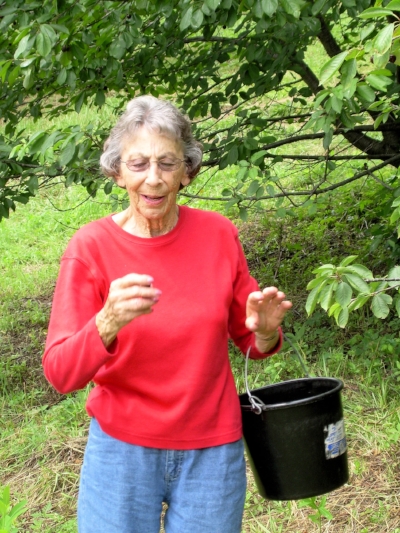Mom's Garden
In later years, before her last tiller disappeared and cancer from 50 years of smoking reduced her to large tennis shoes and large ears with her shrinking body in between, Mom regularly put on shorts atop pantyhose atop varicose veins and tilled the garden. She allowed no weeds to grow between rows, none within sucking distance of the nutrients her vegetables consumed from the rich alluvium left by countless floods of the nearby creek, augmented by 5-10-10 fertilizer, the percentages of nitrogen, phosphorus, and potassium of her preferred blend.
Mom kept the tiller among nearby trees—pin oaks, pines, sycamores, and poplars—where she cranked it and directed its twisting tines out to the rows of corns, beans, peas, potatoes, squash, okra, and tomatoes. Neighbors who passed on the nearby road admired the garden’s order, with no grass, leaves, nor organic matter left between rows.
But a tiller has no key. Perhaps she should have locked it, chained it to a tree. But when someone stole it, she said, “Fuck it,” or the Baptist equivalent after a life of swearing off swearing. She turned over the garden to an ex-con who needed community-service hours, a former student at the school where she was once secretary. He mowed her yard and endeared himself to her. As her memories faded, he replaced her only son. Once her golden boy, her son had become her jailer in a locked memory-care unit of assisted living.
- Dale Easley is a Professor of Environmental Science at the University of Dubuque, which he joined in 2005 after 15 years at the University of New Orleans. He has been a volunteer math teacher in Kenya, a volunteer working on water wells in Haiti, and a Fulbright Fellow in Qatar. His interests include environmental geology, statistics, and the intersection of science and culture. Currently, he focuses upon storytelling in science. You can visit his blog here.





